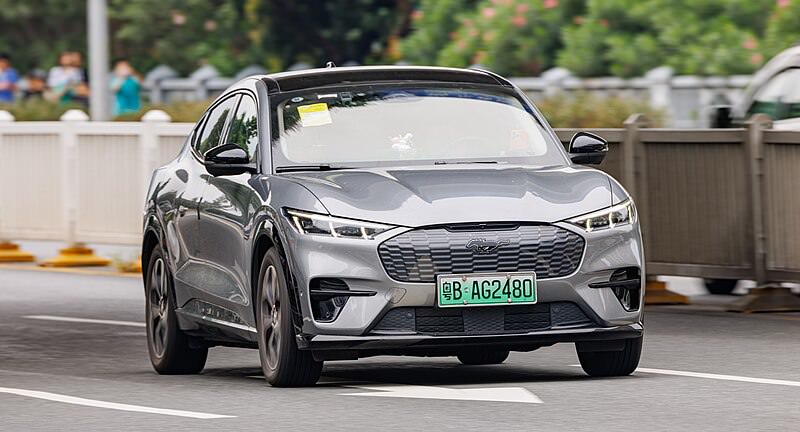Business
Ford presses brake on electric vehicle plans as demand lags
By Jake Beardslee · February 7, 2024
In brief…
- Ford rethinking EV strategy as adoption lags forecasts, may outsource battery production
- Pausing some EV investments, canceled 2026 profitability target
- Developed new low-cost EV platform but timeline unclear
- Will boost hybrid truck sales in near-term, see EVs dominating long-term
- Adjusting plans to match slower than expected EV demand growth

Ford is re-evaluating its electric vehicle plans, including potentially outsourcing battery production instead of making them in-house, according to CEO Jim Farley. Speaking during Ford’s Q4 earnings call on Tuesday, Farley said Ford is “rationalizing the level and timing of our battery capacity” and “reassessing the vertical integration” as demand for EVs grows slower than expected.
Previously, Ford invested heavily in EV and battery production capacity, planning to spend $12 billion. Now, with adoption lagging forecasts, Ford is adjusting. Farley said EVs remain critical long-term but near-term costs are still too high for mass adoption.
A secret Ford “skunkworks” team has developed a new, low-cost EV platform that could underpin affordable EVs. But the timeline is unclear. Ford CFO John Lawler confirmed Ford may delay next-gen EVs to ensure profitability “given the new market reality.”
Ford’s EV unit lost $4.7 billion in 2022, offsetting profits from gas-powered vehicles. Lawler said the EV business must become self-sustaining “sooner rather than later.” Ford is abandoning its 2026 target of 8% profit margin for EVs.
As Ford pauses major EV investments, it will lean into hybrid truck sales, expected to rise 40% this year. But Farley reiterated confidence that EVs will dominate long-term. For now, Ford is rationalizing plans to align with slower than expected demand.